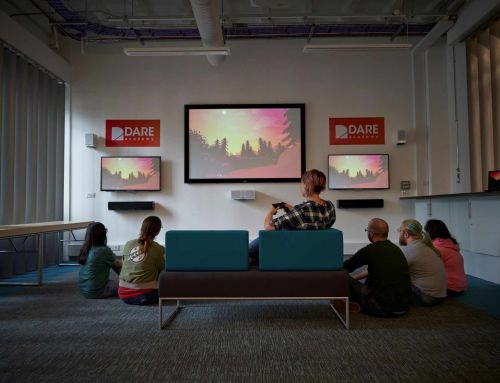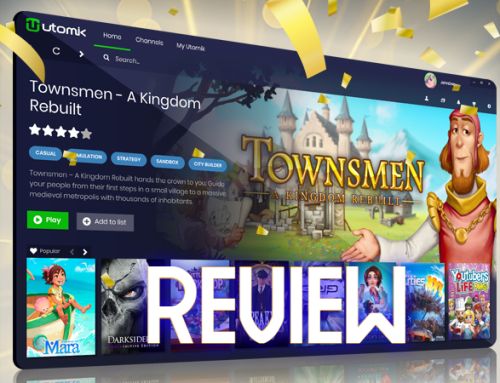OPINION
Europe vs Microsoft, Amazon, Google and Big Tech
The Microsoft/Activision Blizzard merger has been a hot topic amongst gamers since it was announced in January of 2022. The $69 billion acquisition could see some real changes to the gaming industry and is at the forefront of the minds of both gamers and regulators; rightly being looked at under a microscope by the latter all over the world. One unfortunate thing it seems to have brought to light though, is a strange way of operating in the UK and Europe, operating outside of their supposed remit it seems that these regulators are having some kind of identity crisis. We know the UK and Europe especially are PlayStation strongholds in terms of consoles sold, so you would think in theory that they would not have a problem with a deal that would help with competition and offer consumers more choice with how they consume their games with lower barriers to entry. Not that this means the deal should not be examined extremely closely mind.
Though, for reasons unknown to the media, antitrust lawyers and industry commentators, these regulators appear to be operating, not to protect competition, not to protect consumers, but to protect certain competitors or even their own personal interests. Such blatant disregard for their own purpose (of protecting market competition and consumer interests) in favour of protecting market leading corporations I find somewhat farcical. What is most worrying though is they don’t seem to see it and are getting away with it.
The UK Competition and Markets Authority & the hypothetical problems
This Microsoft Activision Blizzard merger may have drawn the most recent attention to these seemingly obvious issues, but they are not the first from these two regulators in recent times. It was only 2021 that The UK Competition and Markets Authority (CMA) blocked Meta acquisition of Giphy, citing reasons such as ‘Giphy could have been an important competitor to Facebook in UK advertising’. A hypothetical scenario of Giphy competing in an area they were not even trying to compete in.
Richard Pepper, a partner at law firm Macfarlanes specialising in UK and European antitrust, said the CMA’s finding in respect of display advertising was “perhaps the most controversial aspect.” He said: “The decision reaffirms the CMA’s desire to pursue global M&A deals that it finds problematic, and it’s willingness to challenge acquisitions on the basis of dynamic theories of harm based on facts not currently observable in the market.” – Financial Times
Such attitudes from regulators are problematic and does not help consumers. It does not help innovation and growth; and means the CMA (in this instance) is not operating in the correct capacity. Apparently now you only need to have ‘means’ to be found guilty, even if you have no motive. Thank God the CMA aren’t working for The Crown Prosecution Service, or we’d have most of the population behind bars. Sadly for Giphy, they will likely struggle to find a buyer and were reported to be struggling financially. Although, admittedly it is not their job to protect Giphy from financial difficulties, just as it is not their job to protect Sony from the same. Ever since their announcement that they are looking deeper into this merger, (good, and so they should) alarm bells have been ringing because they were peppering concerns raised by a single competitor. The only competitor to raise concern and the current market leader incidentally, Sony Interactive Entertainment (SIE). We know this from the transparency of the CADE, Brazil’s regulator, when they reported their investigation and findings, posting their findings and the evidence from their investigation publicly. Incidentally, they passed the merger ‘without the need for restrictions’. They also rightly stated that even if Microsoft were to pull Call of Duty from PlayStation, (which Microsoft have said they intent to keep Call of Duty on PlayStation for as long as there is a PlayStation to put it on) Sony would still be the largest earner in gaming revenue. Furthermore, they go on to say that their job is to protect the Brazilian consumers, individual competitors. Something the UK CMA and The European Commission could take note of.
The European Commission, stage 2 and Cardoso steps in le poo
The European Commission too has blocked their fair share of mergers, citing competition concerns in a long running series of contentious antitrust cases. From fining Google in 2019 for favouring their own price comparison tool, to blocking the Hutchinson acquisition of Telefonica (O2), which was overturned by The EU General Court. There seems to be a great degree on controversy surrounding The Commission. This would likely happen to the Microsoft/Activision Blizzard acquisition should it get blocked now, thanks to the irresponsible tweeting of one Ricardo Cardoso. (See below).
The Commission is working to ensure that you will still be able to play Call of Duty on other consoles (including my Playstation). Also on our to do list: update stock pictures. These gamers have wired controllers whereas Xbox and Playstation have wireless ones since about 2006! https://t.co/Gfvsi3rKXD
— Ricardo Cardoso (@RCardosoEU) November 8, 2022
I couldn’t quite believe my eyes when I saw this tweet from Ricardo Cardoso erupt on Twitter. For a start, individuals involved with or close to an organisation should 100% NOT be commenting on ongoing investigations, especially not tweeting about it! Let alone something with such a clear agenda and clear bias! The use of the words “my PlayStation” really does suggest that he is leaning on his team to give an outcome because of personal preferences. Furthermore, despite being a “personal profile” reading “views are my own”, the Tweet reads like a Commission point of view. “The Commission is working to ensure…”. What this naive (to put it delicately) Tweet does is throw a huge degree of controversy into ANY decision that comes out of this. If this were court this kind of incident would be grounds for a mistrial. Now, whatever verdict the European commission gives it can be argued that the decision was influenced by Cardoso. I’m not one for calling for people’s jobs, but I am surprised Ricardo still has one to say the least. For more information on this, check out a video from Hoeg Law, who specialises in business law.
Regulate our regulators?
More and more these days politics feels to me like both the left- and right-wing parties and ideologies are broken and in desperate need of reform, with something fresh and new for the changing priorities of new generations. The UK and Europe’s regulators are giving me a similar kind of feeling. I absolutely do agree with protecting the consumer and preserving competition, but the UK and Europe seems to have spiralled into these weird, dysfunctional self-serving organisations that really are no longer fit for purpose. They seem now to be organisations without identities, constantly with an agenda of fighting ‘big-tech’ without taking a step back at the big picture, and that some mergers are actually for the best. Beneficial to consumers and the competition of the industry.
There are some big tech issues around (looks at Apple) but this is particular merger is not one of them, nor are many of the others that have been blocked in recent times. Ironically, it is actually Sony who are partaking in the anti-competitive practices in gaming at the moment. For all the amazing things they have done, their dominance has allowed them to: fearlessly raise console prices in all markets except the one that they get real competition in (The US), raise the standard prices of games from $60 to $70, charge consumers for patches that are free on other consoles, charge developers a cross-play tax etc, etc.
Once again, it IS important to have regulation and for deals to be scrutinized, but there seems to be real ongoing issues with regulators in the UK and Europe and as a consumer, I am officially concerned with the way in which these two regulators are being run. Self-serving, competitor protecting and anti-consumer. We have been left with these organisations that have become that which they are supposed to protect against. Perhaps the regulators need regulating?




